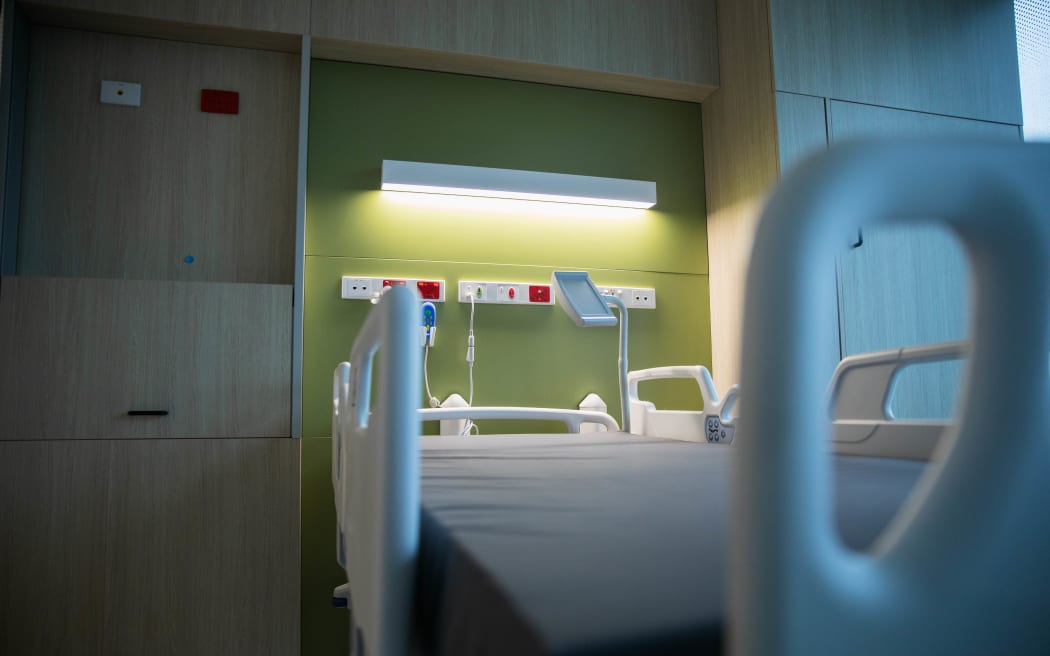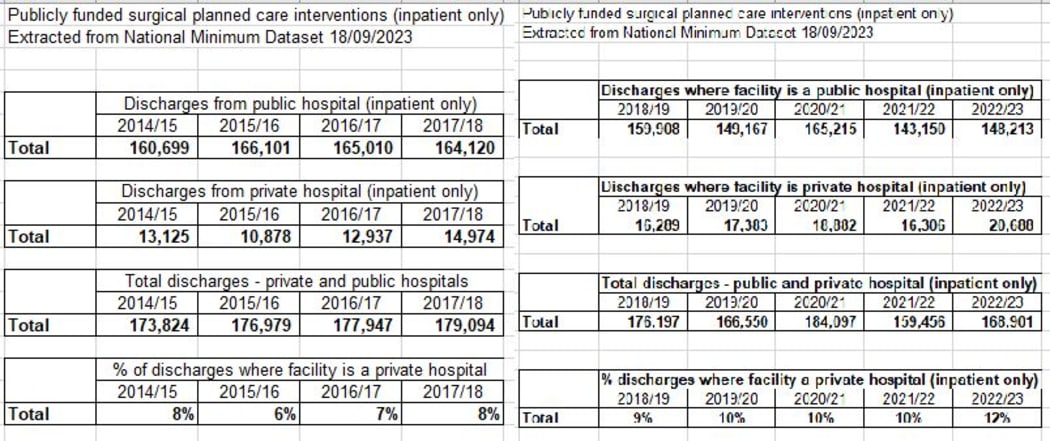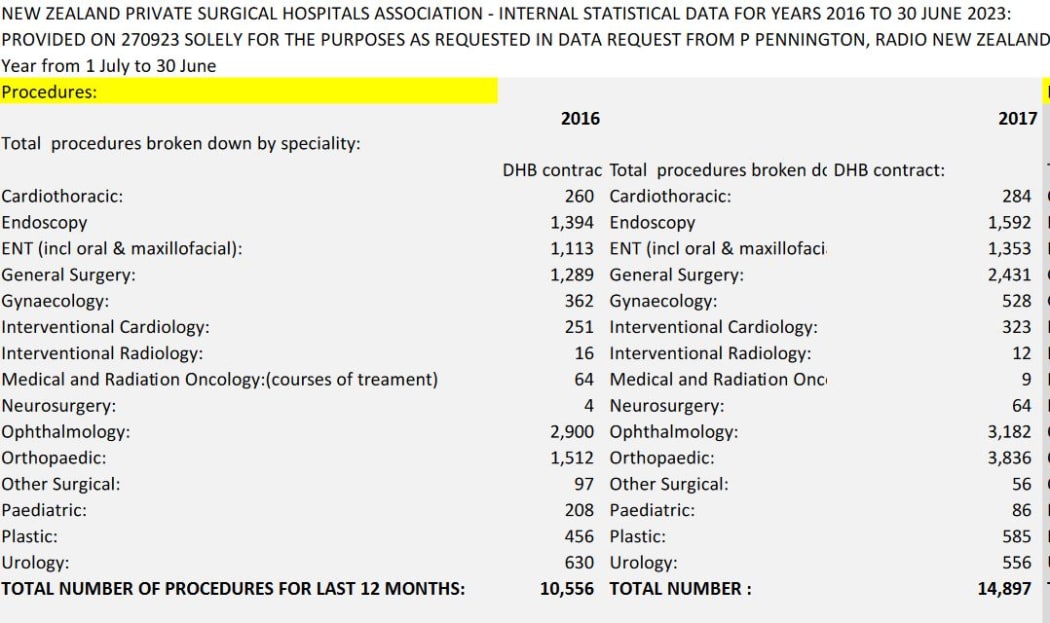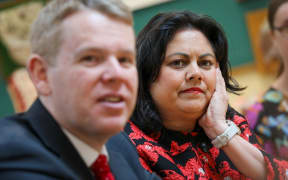
New data shows the number of public-funded inpatient surgeries done in the private sector has doubled since 2015. Photo: RNZ / Samuel Rillstone
The two largest political parties will not say if they support private hospitals picking up even more more publicly funded surgery.
But all the evidence points to it carrying on happening anyway across the next term of Parliament.
Newly released data shows the number of public-funded inpatient surgeries done in the private sector has doubled since 2015, even as the total public-and-private surgery numbers dropped a bit.
The proportion rose from 6 percent to 12 percent of public-funded operations.

Te Whatu Ora data showing public private operations from 2015-2016 and from 2018-2023. Photo: Supplied / Te Whatu Ora data
Private hospital data of their public contracts shows a doubling or tripling of some specialities since 2018, including in orthopaedic, endoscopy and urology treatments.

New Zealand Private Surgical Hospitals Association - internal statistical data for years 2016 to 30 June 2023. Photo: Supplied / NZ Private Surgical Hospitals Association

New Zealand Private Surgical Hospitals Association - internal statistical data for years 2016 to 30 June 2023. Photo: Supplied / NZ Private Surgical Hospitals Association
Outsourcing like this is full of pitfalls and demands careful planning.
"Any increase in use of private sector capacity may lead to a reduction in public workforce availability to deliver existing and additional levels of planned care within the public system," the planned care taskforce warned a year ago.
Canterbury District Health Board dug itself a $140 million hole this way, in five years up to 2018, when it had 10 theatres out due to quake damage so had to hire private theatres.
Te Whatu Ora was reluctant to talk about contracts, when RNZ asked.
It "has not made any plans to drive up the overall amount of outsourcing - and no overarching targets have therefore been set", it said.
However, internal documents show it has proposed setting up a national six-person team to oversee a 10-year plan "to develop and lead a world class system for outsourced clinical services".
Big private radiology player Infratil has talked up the prospects of longer contracts, and said in March it was "positioned to become key partner with Te Whatu Ora".
The planned care taskforce told health bosses to look at longer contracts, as the privates had money to invest in new hospitals and clinics if they could get them.
However, election campaign notwithstanding, neither National nor Labour gave a clear answer as to whether they back the public system entering into more of such contracts.
Labour health spokesperson Ayesha Verrall only mentioned outsourcing in respect of clearing the Covid backlog.
National health spokesperson Shane Reti said it would "appropriately utilise outsourcing to reduce wait times which is a key focus".
They both said they were "committed" to the public health sector, in three-line statements because their health spokespeople were too busy campaigning to give an interview.
The planned care taskforce was more clear-cut a year ago, when it told health bosses to collaborate more with the private sector.
"Strategic assets such as purely elective facilities protect planned care capacity and should be further developed along with improved use of private surgical hospitals and specialty facilities," it said.
As part of that, look at contracts, it told Te Whatu Ora: Health companies "require longer term agreements to establish this [new] capacity", it said.
Most companies also wanted more lucrative contracts - "in some cases up to and in excess of 20 percent".
A year on, demand has grown, along with it the signs that even private capacity is filling up, especially since it likes to take the higher-volume, easier operations, and leave the long-duration, higher-risk stuff to public.
A shared theme between the taskforce last year, and Te Whatu Ora now, was for a nationally consistent approach. District health boards had engaged in fragmented outsourcing, often in a panic as wait-lists grew, doctors told RNZ.
Achieving consistency and efficiency was the aim of its new outsourcing roles, "rather than any 'plan' to scale up outsourcing", Te Whatu Ora told RNZ.
"The work includes developing an approach to support private providers to better plan their long-term investment strategies."
Asked about multi-year contracts, it said: "There are many contracts and given the timeframe provided, and the current stage of the planning process, we are unable to provide detailed information about which ones may be smaller or larger than they previously were."
Outsourcing varied depending on supply and demand, it said.
Its stated aim is to strategically harness private treatment "to overcome significant variations in the quality of care that people experience".
The Private Surgical Hospitals Association recently told RNZ its members were not siphoning off specialists from the public system, but partnered well with it.
Overall demand was growing year-on-year and "a part of that is certainly Te Whatu Ora or planned care components", it said.






